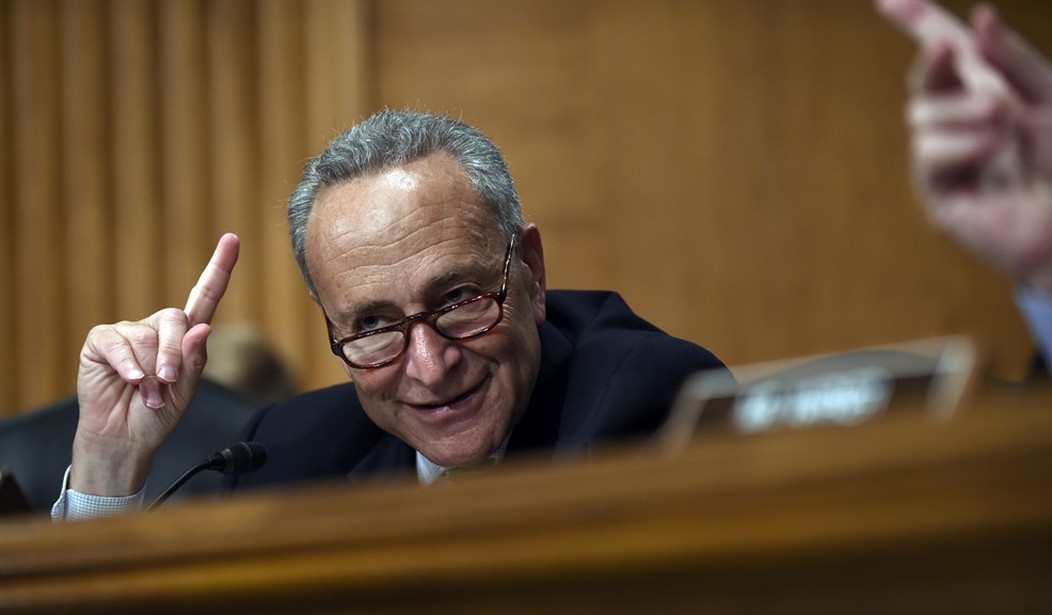New York City voters backed Barack Obama over Mitt Romney by an astounding 63 percentage points in 2012. The Big Apple is a very liberal, heavily Democratic place. Yet its residents oppose Obama's nuclear deal with Iran, adopting a stance the president has
Advertisement
New York City voters oppose 43 - 36 percent the proposed nuclear agreement with Iran, according to a Quinnipiac University poll released today. Jewish voters oppose the proposed pact 53 - 33 percent, the independent Quinnipiac University Poll finds. Opposition is 70 - 15 percent among Republican voters and 51 - 32 percent among independent voters, while Democrats support the pact 43 - 33 percent. Manhattan voters support the nuclear deal 48 - 27 percent, and Brooklyn voters are divided with support at 40 percent and opposition at 43 percent. Opposition is 42 - 26 percent in The Bronx, 49 - 33 percent in Queens and 76 - 11 percent in Staten Island. Voters are divided on whether the deal would make the world safer or not as 40 percent say safer and 42 percent say less safe. Jewish voters say 51 - 37 percent the pact would make the world less safe.
It would appear that Sen. Charles Schumer -- who's endured withering criticism from the Left for announcing his opposition to the accord -- is on relatively firm political ground back home. The rest of the state he represents is significantly more conservative than the city, so it stands to reason that the overall New York electorate is even less enthusiastic about the deal than those polled by Quinnipiac. Schumer has laid out a
Recommended
Advertisement
The lone Democratic senator to publicly oppose President Barack Obama's nuclear agreement with Iran said Tuesday that even if the U.S. backs away and other countries lift their sanctions, Iran still will feel "meaningful pressure" from the U.S. penalties...Schumer said that sanctions aimed at companies that do business with Iran could force U.S. allies and trade partners back to the negotiating table. "Let's not forget, those secondary sanctions are very powerful," Schumer told reporters in New York. He said these sanctions alert corporations, such as the French oil company Total, that if it deals with Iran, it cannot deal with the United States. "We have that powerful tool, and if used, I think that's a better, better chance in a very difficult world than an agreement that is so totally flawed," Schumer said.
Schumer wants a more muscular deal that better serves American interests, as do many skeptics. The executive director of the Washington Institute for Near East Policy has written a useful primer on the actual implications of a potential Congressional vote to disapprove of Obama's plan. He argues that a disapproval vote could lead to a stronger agreement, and that the White House's supporters are overstating the risks if Congress torpedoes the deal:
Advertisement
Advocates of the agreement have suggested that a successful congressional resolution of disapproval would kill the deal. They have argued that Iran would lose faith in America's commitment to the agreement, pull out, and ramp up its enrichment program to new levels, and that the Europeans would cry foul at America's lack of fair play and end sanctions of their own accord. Advocates of the accord also suggest that without agreed limits on its nuclear program, Iran would sooner or later trigger either American or Israeli military action, which would unleash regional war. There are strong arguments why each of these predictions is misplaced...the outcome will rest on the Obama administration's response. If the administration maintains effective enforcement of its nuclear-related sanctions, along with enforcement of the primary and secondary aspects of the nonnuclear sanctions that will be unaffected by the Iran deal, European business leaders are ultimately unlikely to value the Iranian market more than the U.S. market, and much of the existing sanctions regime would stay in place. In that scenario, the outcome would probably be murky -- the global sanctions regime would be less effective than it is today but would still have significant bite. It would collapse only if the United States failed to enforce its own sanctions. Yet it is difficult to see a scenario in which the threat of war would be substantially higher than it is today.
Advertisement
Might the Obama administration deliberately choose not to enforce its own sanctions, in yet another end-run around Congress? That seems possible, if not likely, given this president's track record. But if Obama is replaced with a Republican president, the illegitimacy of Obama's deal -- having been disapproved by bipartisan majorities and opposed by most voters -- would offer a turn-key pretext to withdraw from the agreement, and/or step up strict enforcement of US sanctions. The looming threat of this possible scenario may also force European companies to hedge their bets on doing business in Iran, strengthening the bite of the remaining sanctions. Meanwhile, this is the latest narrative from the White House and its allies:
Republicans Who Oppose the Iran Deal Are Making Promises They Can’t Keep - http://t.co/VALNsM0XXa via @brianbeutler
— Eric Schultz (@Schultz44) August 11, 2015The administration ignores substantial Democratic opposition to the agreement because it's easier to paint the controversy as reflexive partisan bickering, rather than a substantive and consequential disagreement over a matter of immense geopolitical importance. And the "promises they can't keep" line is rich, coming from the defenders of a president whose assurances and
Advertisement
























Join the conversation as a VIP Member